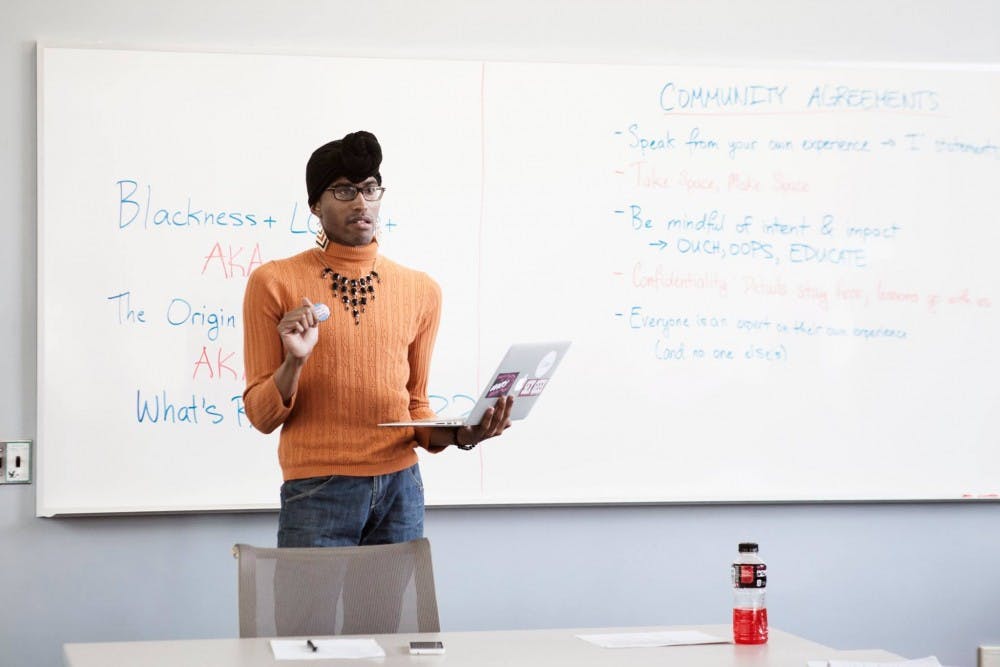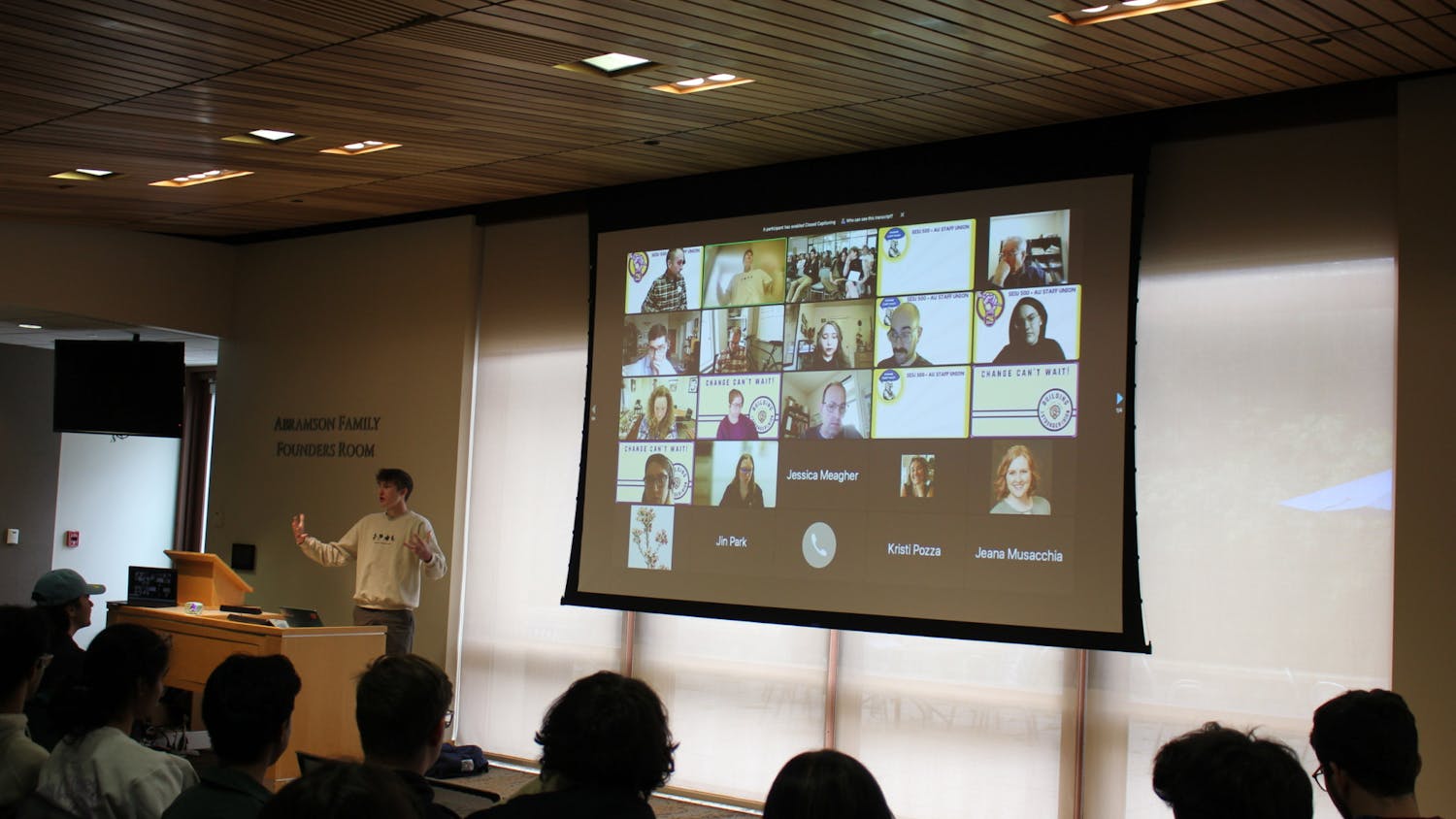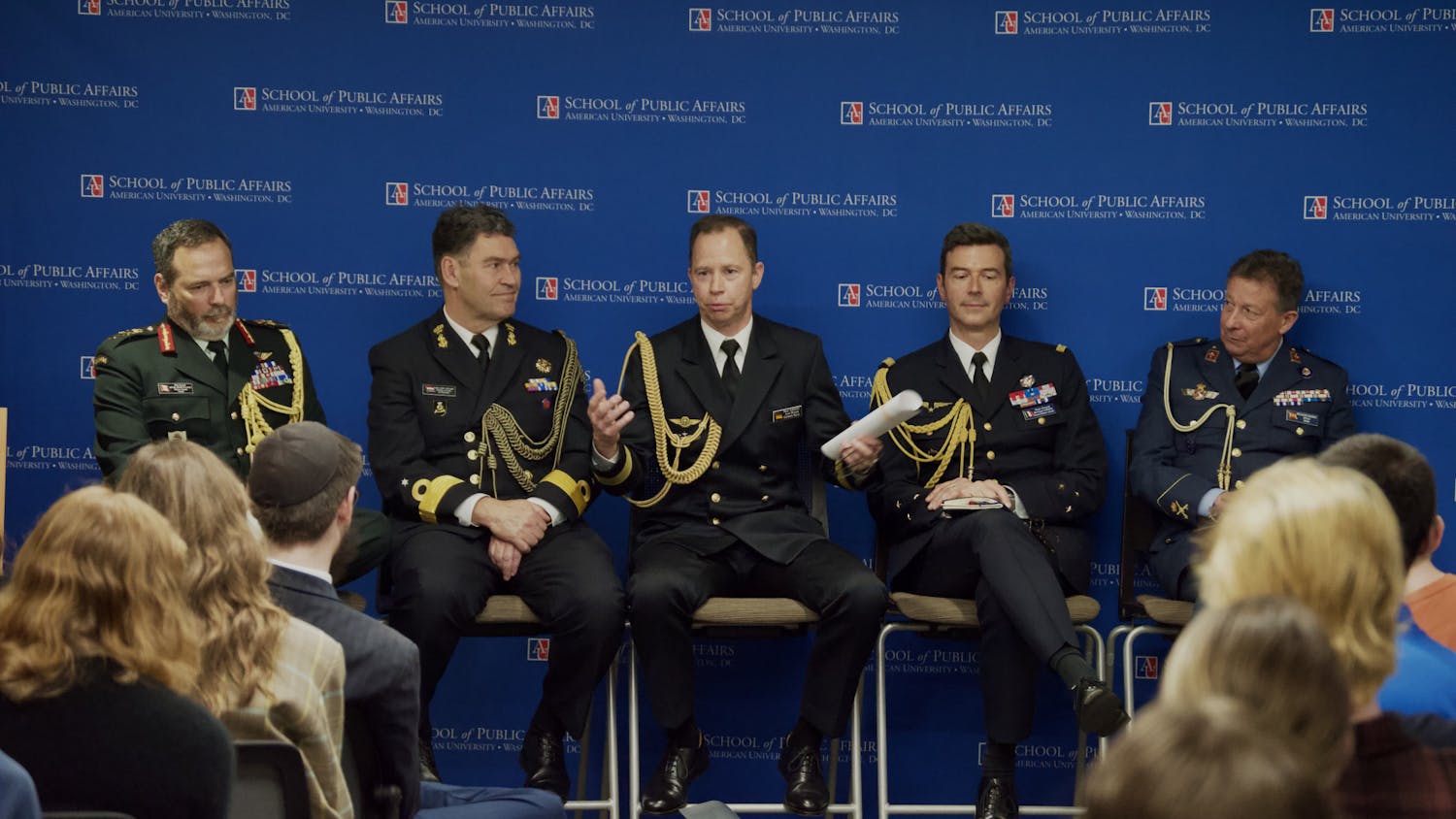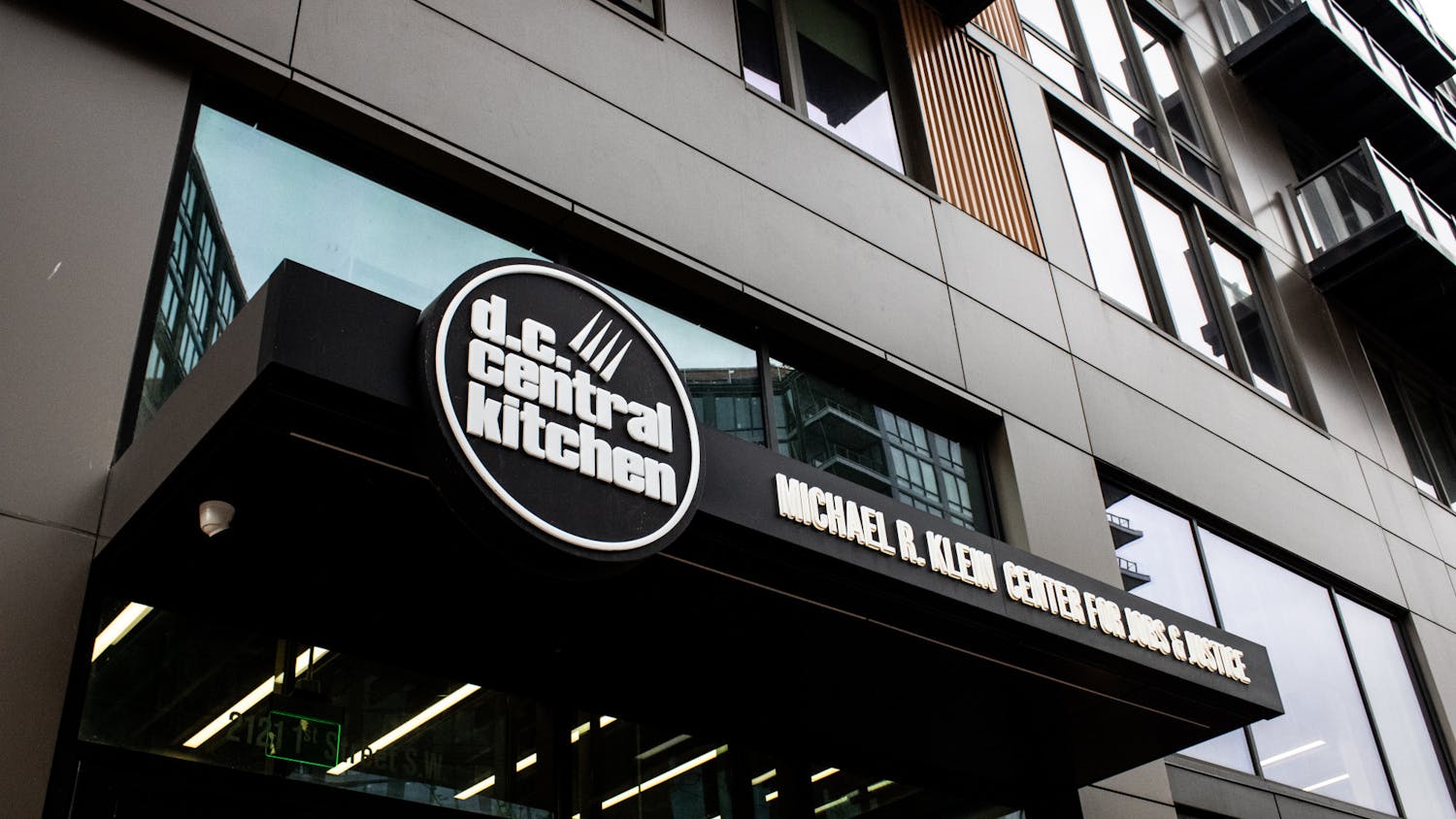This past Saturday, the Darkening hosted its second annual teach-in, which included panels, lectures and workshops focused on the modern civil rights movement for students, faculty and staff.
This year’s discussion theme was “Today’s Civil Rights Movement,” and most of the discussions and workshops focused on the present and future of racial injustice. The event, held in the SIS Founder’s Room, started with an introduction and panel, where questions were posed by the moderator and audience about everything from race and feminism to revolution.
The purpose of this teach-in was to educate students on matters of race from different perspectives and discuss the current movement happening in the black community, according to moderator Emem Obot, a sophomore in the School of International Service.
“We see the community fight for their humanity while also pushing for consciousness and unlayering what society has told us about ourselves, and we do this because not everyone dying experiences the world through a black straight man, not everyone dying lives the experience of a middle class black academic and not everyone dying lives the experience of documented black folks,” Obot said during the introduction of the panel.
Panel speakers included Aaron Goggans, an activist and organizer for the Black Lives Matter movement, and Zoe Samudzi, the research coordinator for the Sheroes Project, a study that seeks to create culturally competent and identity affirming HIV prevention interventions for trans women of color. Sam Pride, an organizer for Unite Here Local 25, a labor union that represents hotel workers in the D.C. area, and Venus Selenite, a D.C.-based writer, performance poet, social critic and cultural worker, also served as members of the panel.
“Our panelists today are individuals dedicated to organizing and speaking to our community while understanding that black folks are from model living,” Obot said.
After the introduction and panel, there were three block teach-ins, with each teach-in offering different workshops and discussions for people to discuss race and intersections with sexuality, gender, society and allyship .
The first block consisted of an “Unmasking White Privilege” workshop with Associate Dean of Undergraduate Studies and Professor of Sociology Celine-Marie Pascale, which addressed white versus caucasian and the roots of the caucasian versus white race. White privilege was discussed as well as the presence of able-bodied, heterosexual and cisgender privilege in society.
“When we understand how racism creates privilege as well as harm, we have a better chance of understanding how racism permeates U.S. society and therefore more options for successfully addressing it,” Pascale said.
Writer and digital communications officer Janessa “Nessa” Robinson led the other session during the first block, with her session focusing on race and personal mental health strategies.
During the second block, participants could choose from three teach-ins, ranging in topics from stereotypes about Asians and Pacific Islanders, allyship in race relations and blackness in the LGBTQ+ community. The first option, “Model Minority Myth,” was proctored by Asian American and Pacific Islander students, including College of Arts and Sciences junior Aya Folk and School of International Service freshman Roshni Sharma. The panel discussed how the idea of Asians and Pacific Islanders being the model minority is both harmful for other minorities as well as for their own communities.
A second workshop offered during the second block, titled “Allyship in Action,” focused on how minorities and white people can be allies against racism in society. Members of AU’s National Association for the Advancement of Colored People campus chapter led the discussion.
The final option was the “LGBTQ+ and Blackness” class with Venus Selenite, Zoe Samudzi and Malcolm Shanks, an employee for Beyond These Walls, a LGBTQ+ organization committed to supporting prisoners in the LGBTQ+ community. This session focused specifically on sexuality, gender and the discrimination against non-heteronormative ideas in the black community.
In addition to providing teach-in sessions, The Darkening also offered a power mapping session, an activity for people to map out the best way to target social change. The final block of workshops then consisted of “Mental Health and Race,” which discussed mental health issues within the black community that are not addressed because of inherent racism. Participants could also choose “Policies that Account for Oppression” with Associate Professor of Anthropology Rachel Watkins, which dealt with society oppressing minorities through the law and other outlets.
The day ended with closing remarks from one of the main organizers of the event, The Darkening leader and School of Public Affairs senior Tatiana Laing. Sharma said she has an interest in getting involved with The Darkening after learning more about race, privilege and intersectionality from the teach-in.
“I loved that there were different panels and speakers corresponding with some of today's civil rights or racial issues and going to different panels and learning in depth about those struggles was really enlightening,” Sharma said. “I'm looking forward to more of The Darkening's events because this was the first one I attended, and I would love to get more involved.”





